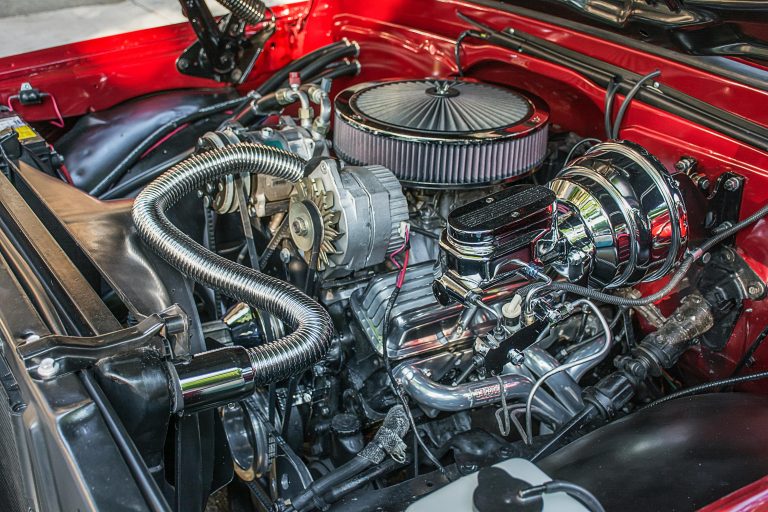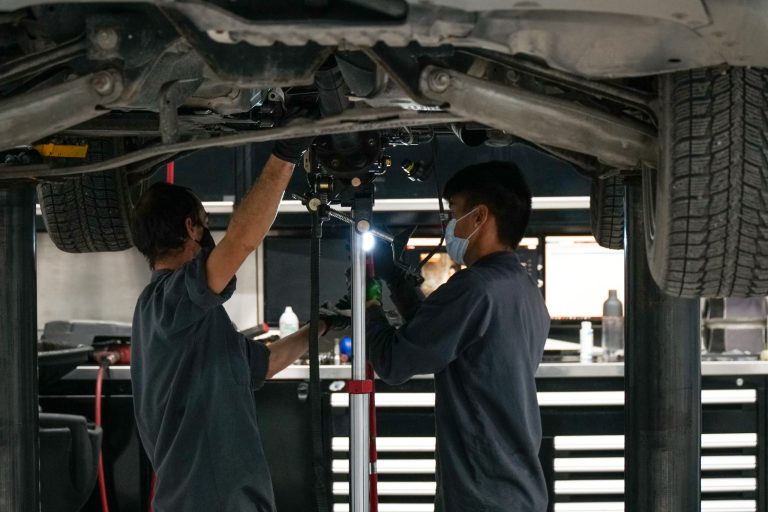Wondering what the difference is between OEM (Original Equipment Manufacturer) parts compared to aftermarket parts? Each option has its pros and cons, and understanding the difference between the two can help you make the best choice for your vehicle. We’ll break down what OEM and aftermarket parts are, explore the pros and cons of each, and explain why Birchwood exclusively uses OEM parts to provide the highest quality service!
What Are OEM Parts?
OEM parts are made by the vehicle’s original manufacturer or a partner authorized by the automaker. These parts are identical to the ones that were installed in your vehicle when it was first assembled. Because they are manufactured by or under the approval of the vehicle maker, OEM parts are designed to meet the exact specifications and performance standards of your vehicle.
What Are Aftermarket Parts?
Aftermarket parts are produced by companies other than the vehicle’s original manufacturer. These parts are often designed to fit multiple vehicle models and may vary in quality, fit, and performance. Aftermarket parts can be found in a wide range of prices, from budget-friendly options to high-end alternatives that claim to offer better performance than OEM parts.
Pros and Cons of OEM Parts
Pros:
Quality Assurance: OEM parts are made to meet the strict quality standards set by the vehicle manufacturer. They are subjected to extensive testing to ensure they perform and fit just like the original parts, which helps maintain your vehicle’s reliability.
Perfect Fit: Because they are designed specifically for your vehicle, OEM parts guarantee a perfect fit. This compatibility reduces the risk of improper installation and ensures that the part works seamlessly with the rest of your vehicle.
Warranty Protection: Using OEM parts often preserves your vehicle’s warranty. If your vehicle is still under warranty, repairs done with OEM parts are usually covered, providing peace of mind that you won’t face unexpected repair costs.
Consistent Performance: OEM parts are built to match the exact specifications of the original components, ensuring consistent performance and maintaining the integrity of your vehicle’s systems.
Cons:
Higher Cost: OEM parts tend to be more expensive than aftermarket parts due to their quality and the brand name attached to them. However, the higher upfront cost can be seen as an investment in your vehicle’s longevity and reliability.
Limited Availability: Depending on the make and model of your vehicle, OEM parts might not be as readily available as aftermarket parts, which can lead to longer wait times for repairs.
Pros and Cons of Aftermarket Parts
Pros:
Cost Savings: Aftermarket parts are generally less expensive than OEM parts. This can make them an attractive option if you’re on a tight budget or if you’re repairing an older vehicle.
Variety of Options: The aftermarket parts industry is vast, offering a wide range of options in terms of price, quality, and performance. This variety allows you to choose parts that suit your specific needs and preferences.
Availability: Aftermarket parts are usually more widely available than OEM parts, which can be beneficial if you need a quick repair or are looking for a part that’s difficult to find through the manufacturer.
Cons:
Reduced Quality: The quality of aftermarket parts can vary significantly. While some may be as good as OEM parts, others may not meet the same standards, leading to potential issues with fit, performance, and durability.
Potential Warranty Issues: Using aftermarket parts could void your vehicle’s warranty, especially if the part fails and causes damage to other components. It’s essential to check your vehicle’s warranty terms before opting for aftermarket parts.
Fitment Issues: Because aftermarket parts are often designed to fit multiple models, they may not fit your vehicle as precisely as OEM parts. This can lead to installation challenges and may affect the performance of your vehicle.

Why Birchwood Automotive Group Uses OEM Parts
At Birchwood, we understand the importance of maintaining your vehicle’s performance, safety, and longevity. That’s why we exclusively use OEM parts in all our service and repair work. By adhering to manufacturer standards, we ensure that your vehicle receives components that are designed to perform seamlessly with the rest of your vehicle’s systems.
Commitment to Quality: We believe that using OEM parts is the best way to provide consistent, high-quality service. Our certified technicians are trained to install OEM parts with precision, ensuring that your vehicle continues to operate at its best.
Manufacturer Standards: OEM parts are engineered to meet the exact specifications set by the manufacturer. This means that every part we install at Birchwood is designed to function as intended, preserving the performance and safety features that your vehicle was built with.
Preserving Resale Value: Vehicles maintained with OEM parts tend to have a higher resale value. Buyers are often more confident in purchasing a vehicle that has been serviced with OEM parts, knowing that it has been kept in top condition according to the manufacturer’s standards.

When it comes to maintaining your vehicle, the choice between OEM and aftermarket parts is an important one. At Birchwood, we’re committed to providing the highest standard of care for your vehicle by using OEM parts. Whether you need routine maintenance or a complex repair, you can trust our team to deliver the quality and reliability that your vehicle deserves. Contact us today to schedule your service appointment and experience the Birchwood difference!


